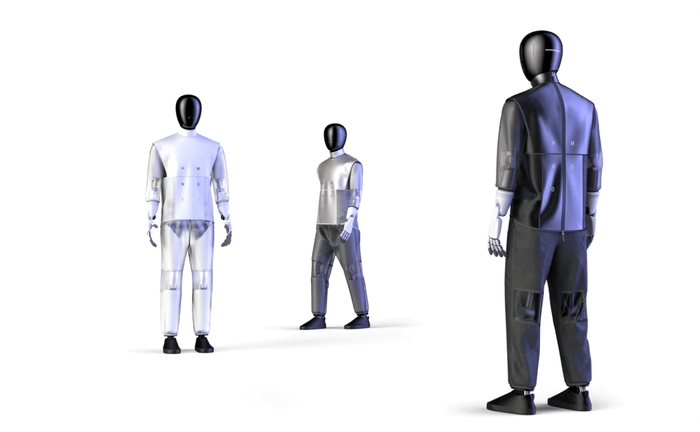Electric Air Taxi Lands at Florida Air Force Base; the First DeliveryElectric Air Taxi Lands at Florida Air Force Base; the First Delivery
The Beta Technologies Alia aircraft is scheduled to stay at Elgin for several months for the Air Force for training

An electric aerial vehicle (EAV) landed at a U.S. Air Force base in Florida today to begin a deployment by the Air Force.
Beta Technologies landed its piloted EAV at Duke Field, a part of Eglin Air Force Base after a series of flights starting in Burlington, Vermont.
The Beta Alia aircraft is scheduled to stay at Elgin for several months for the Air Force for hands-on experimentation and training with the technology.
Beta has partnered with AFWERX, the innovation arm of the U.S. Air Force that leverages the Air Force Research Laboratory for this program.
On its way to Florida, Beta’s EAV landed at Joint Base Andrews, the home of Air Force One.
Beta makes both an eVTOL (electric vertical and takeoff) aircraft and an eCTOL (electric conventional takeoff and landing) craft.
The Beta Alia EAV on the tour, coordinated by AFWERX, was a conventional landing vehicle.
“For the past several years, AFWERX has provided critical input and support to the Beta programs,” said Kyle Clark, Beta founder and CEO. “Deploying Alia for experimentation and training at Duke Field is the natural next step in our partnership. We look forward to working hand-in-hand with the U.S. Air Force over the next few months as we work together to assess how the economic, sustainability, and energy independence benefits of electric aviation can serve our military. In addition to the milestone of delivering an asset to our partners, this mission has been an invaluable opportunity to fly our electric aircraft down the east coast into the communities this technology, and our operators will ultimately serve.”
Beta recently installed aircraft electric charging stations at Eglin Air Force Base to service the EAV while there.
The company recently installed the first charging station for electric flying vehicles at Raleigh Executive Jetport in North Carolina.
The Beta chargers are multimodal, meaning they can charge electric aircraft as well as electric cars and trucks at the airport.
Beta’s eCTOL aircraft is planned for service in 2025 with its vertical takeoff version in service the following year.
Beta recently flew its EAV from New York to Montreal, crossing international borders. The company test flights generally have a pilot and flight test engineer on board.
Beta received an airworthiness certificate for manned flight from the military, with military test pilots flying the vehicles.
“The Department of the Air Force is constantly searching for the next generation of technology to make our warfighters safer and more efficient,” said Col. Elliott Leigh, AFWERX director and chief commercialization officer for the DAF. “As agile innovators, we believe that partnering with American businesses is the key to this goal for delivering disruptive air capabilities.”

Many EAVs are eVTOLs, which do not require traditional runways, since they take off and land straight up and down.
Vertiport facilities to manage the takeoff, landing, charging and maintenance of such vehicles are being established globally by companies including Volatus Infrastructure and Aeroauto Vertiport Development, which also has retail showrooms for flying vehicle sales in Florida.
Beta’s electric charger can charge an electric aircraft in less than an hour, according to the company.
Countless EAVs are under development, ranging from those in the ultralight category, which do not require a pilot license to fly, to air taxis. Major airlines including Delta Air Lines, United Airlines and American Airlines all have placed orders or pre-orders for electric aerial vehicles.
Like what you've read? For more stories like this on flying cars and emerging technologies, sign up for our free daily email newsletter to stay updated!
Read more about:
Flying CarsAbout the Author
You May Also Like







